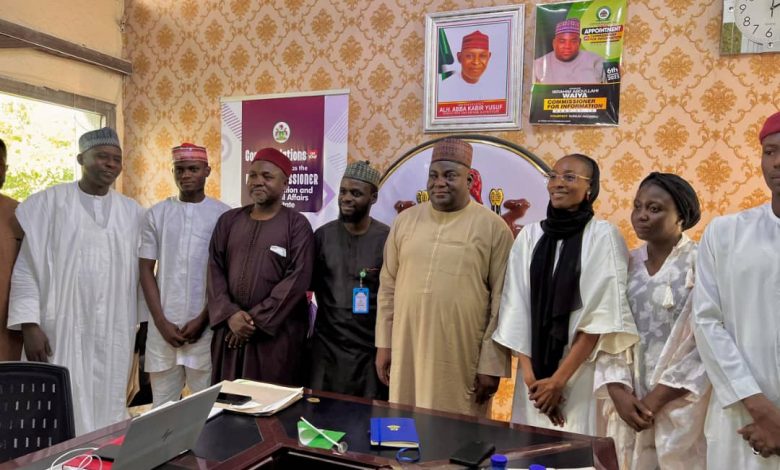
The Kano State Government has reiterated its commitment to combating drug abuse and political thuggery through collaborative efforts and strategic public enlightenment campaigns.
This was conveyed in a statement signed by the Director of Special Duties, Sani Abba Yola, following a courtesy visit by the Coordinator of Kiru Reformative Centre, Ms. Cheryl Aminta Kwagga, to the Ministry of Information and Internal Affairs as part of her stakeholder engagement drive.
Commissioner for Information and Internal Affairs, Comrade Ibrahim Abdullahi Waiya, welcomed the visit, describing it as timely and strategic, and emphasized the state government’s readiness to partner with credible institutions in addressing youth-related social vices.
Read Also:
Waiya’s Transformative Impact on Kano’s Public Image
“You have come at the right time. I am currently chairing a stakeholders’ coordinating committee on a project that targets thuggery and other associated vices. We are already working towards engaging organisations like the Kiru Reformative Centre,” he stated.
The Commissioner explained that the initiative, code-named Safe Corridor: The Kano Model, has already recorded success in reaching out to delinquent youths. He said many have shown willingness to undergo rehabilitation and reintegration into society.
“We have profiled hundreds of youths who are now ready to turn a new leaf. They are willing to abandon the dangerous path of thuggery and drug abuse and become useful to themselves and to society,” he said.
Waiya also disclosed that a comprehensive action plan for the project is in its final stages and will soon be made public. The plan, he noted, includes targeted programmes designed to eliminate the root causes of crime among young people.
He assured the Kiru Reformative Centre of the Ministry’s full support, stressing that drug abuse remains a major catalyst for criminality and social decay.
“We will work closely with your Centre to provide the needed public awareness and sensitisation required to reform our youth,” he stated.
In her remarks, Ms. Cheryl Aminta Kwagga appealed for the Ministry’s partnership in creating public awareness about the Centre’s reformative efforts. She acknowledged the Ministry’s key role in shaping public opinion and mobilising community support.
“This battle must be fought together,” she said, “especially by leveraging the Ministry’s media expertise to reach affected communities.”
Ms. Kwagga added that her visit was part of a broader stakeholder mobilisation effort aimed at addressing the root causes of youth restiveness through advocacy, rehabilitation, and community-based interventions.



